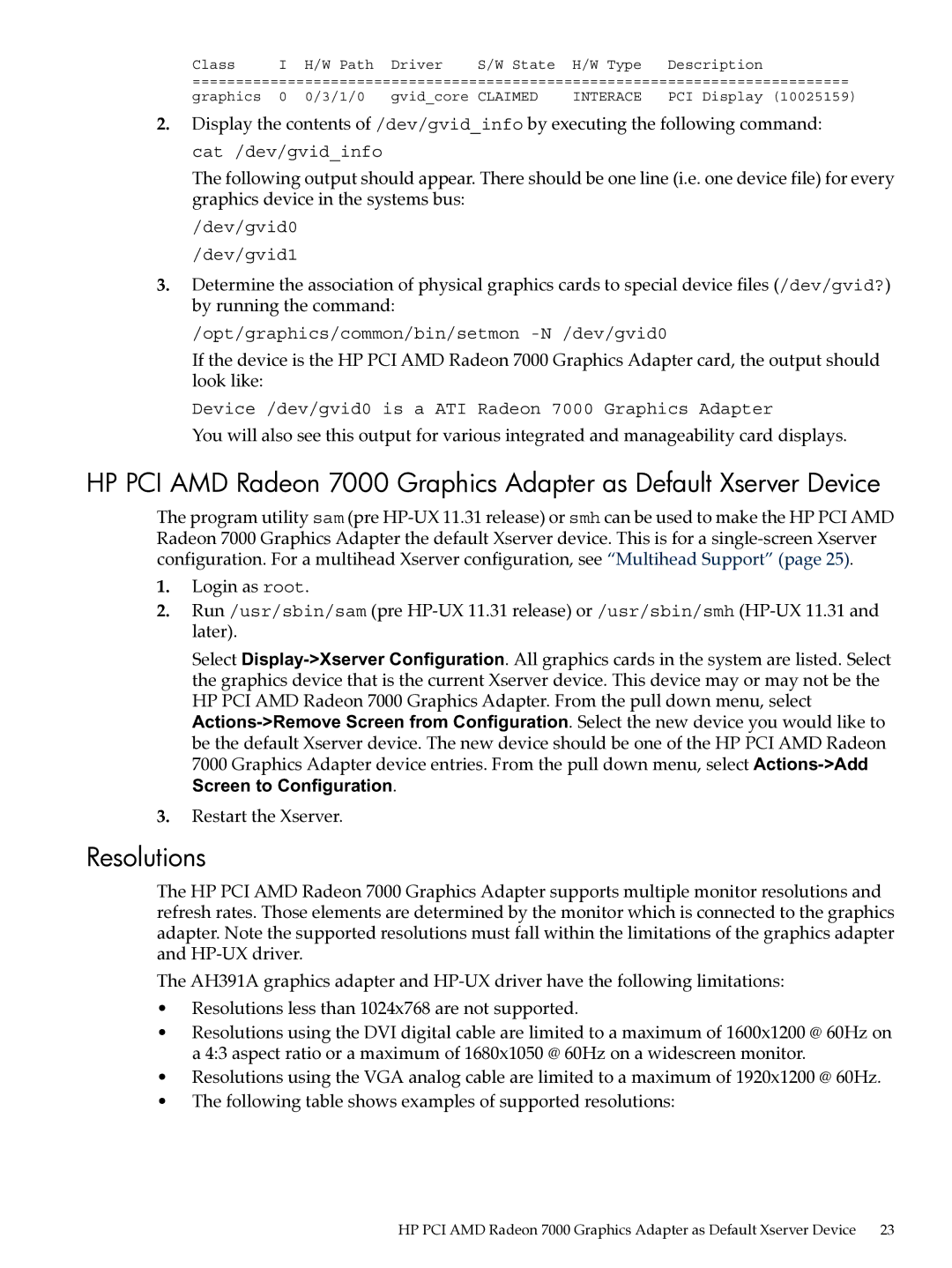Class I H/W Path Driver S/W State H/W Type Description
============================================================================
graphics 0 0/3/1/0 gvid_core CLAIMED | INTERACE | PCI Display (10025159) |
2.Display the contents of /dev/gvid_info by executing the following command: cat /dev/gvid_info
The following output should appear. There should be one line (i.e. one device file) for every graphics device in the systems bus:
/dev/gvid0
/dev/gvid1
3.Determine the association of physical graphics cards to special device files (/dev/gvid?) by running the command:
/opt/graphics/common/bin/setmon
If the device is the HP PCI AMD Radeon 7000 Graphics Adapter card, the output should look like:
Device /dev/gvid0 is a ATI Radeon 7000 Graphics Adapter
You will also see this output for various integrated and manageability card displays.
HP PCI AMD Radeon 7000 Graphics Adapter as Default Xserver Device
The program utility sam (pre
1.Login as root.
2.Run /usr/sbin/sam (pre
Select
3.Restart the Xserver.
Resolutions
The HP PCI AMD Radeon 7000 Graphics Adapter supports multiple monitor resolutions and refresh rates. Those elements are determined by the monitor which is connected to the graphics adapter. Note the supported resolutions must fall within the limitations of the graphics adapter and
The AH391A graphics adapter and
•Resolutions less than 1024x768 are not supported.
•Resolutions using the DVI digital cable are limited to a maximum of 1600x1200 @ 60Hz on a 4:3 aspect ratio or a maximum of 1680x1050 @ 60Hz on a widescreen monitor.
•Resolutions using the VGA analog cable are limited to a maximum of 1920x1200 @ 60Hz.
•The following table shows examples of supported resolutions:
HP PCI AMD Radeon 7000 Graphics Adapter as Default Xserver Device 23
